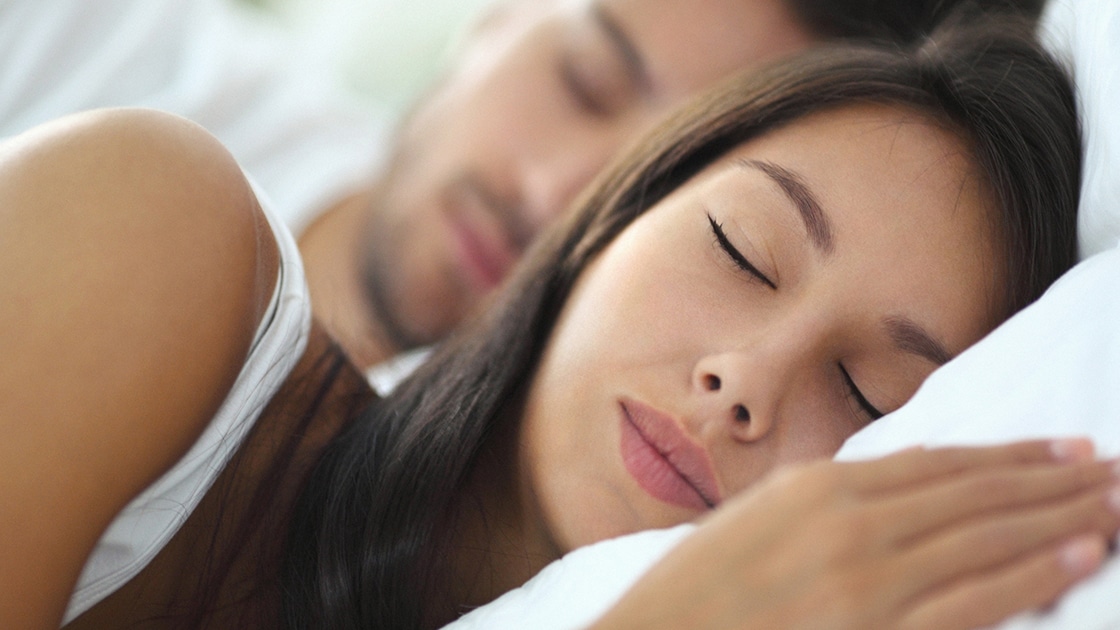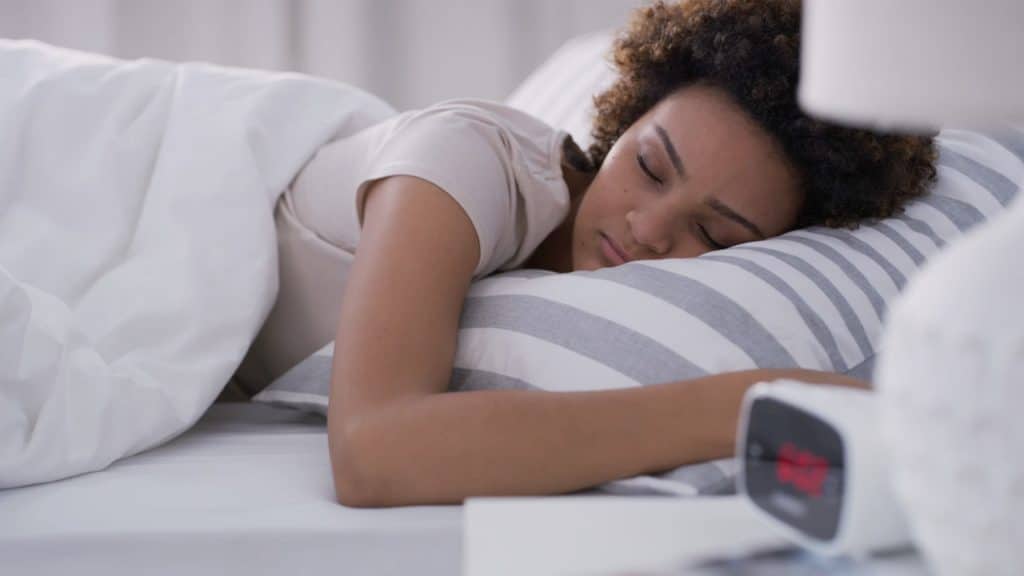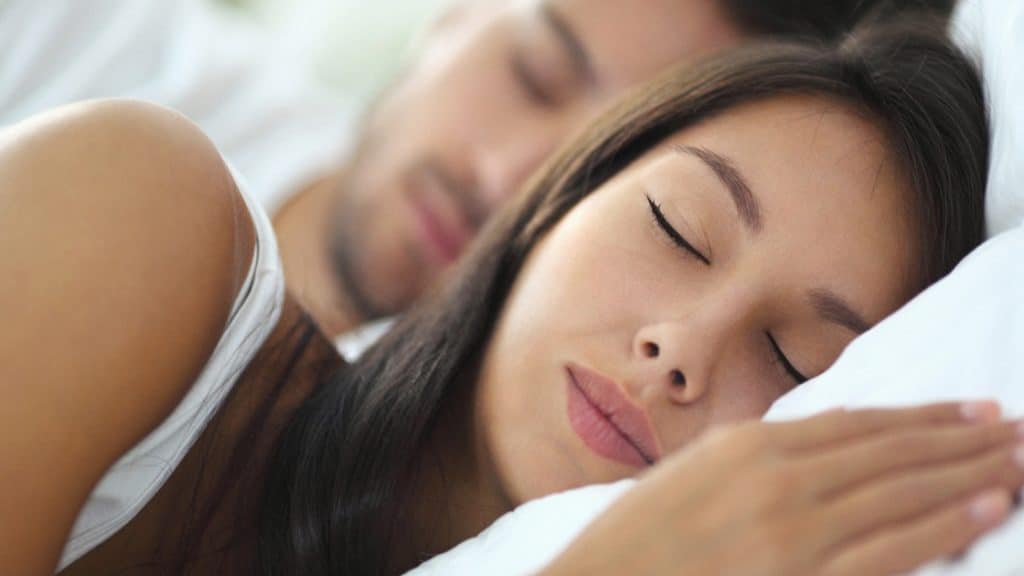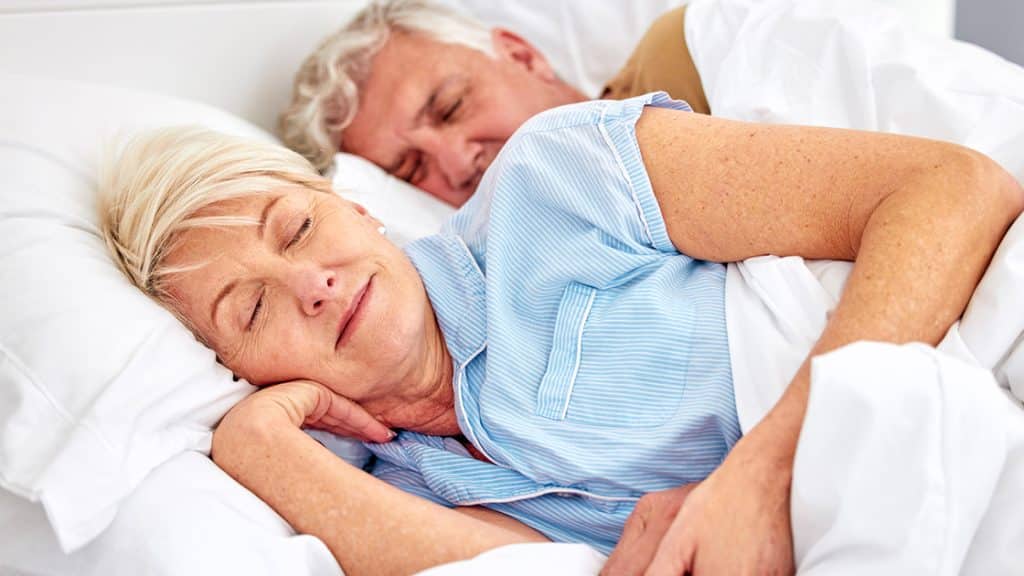
Sleep Study Near Me New Milford NJ
Do you spend your nights staring at the ceiling, wondering why restful sleep feels so out of reach? Perhaps you wake up feeling more exhausted than when you went to bed, even after spending a full eight hours under the covers. If this struggle is familiar, you are not alone. Millions of Americans face sleep disorders that prevent them from getting the restorative rest their bodies and minds need.
The nightly battle for sleep affects far more than just your energy levels. Persistent poor sleep quality can have a ripple effect, impacting everything from your concentration at work to your mood and relationships with loved ones. Many people do not realize that these ongoing sleep problems are often symptoms of underlying medical conditions that require professional sleep evaluation and treatment.
A comprehensive sleep study is the most effective way to understand and resolve these challenges. This non-invasive diagnostic tool provides healthcare professionals in New Milford NJ with detailed insights into what occurs in your body during sleep, revealing the root causes of your restless nights. By identifying specific sleep disorders, you can access targeted treatments that restore your natural sleep patterns and transform your overall quality of life.
Understanding the Signs: When to Consider a Sleep Study
More Than Just Tiredness
Occasional tiredness is normal, but persistent exhaustion affecting your daily life is different. If fatigue is your constant companion despite regular sleep, an underlying disorder might be the cause. This chronic exhaustion doesn’t improve with extra sleep or lifestyle changes. It often worsens without proper intervention, signaling it’s time to look deeper.
Physical Symptoms During Sleep
Physical symptoms often provide the clearest signs a sleep study is needed. Loud, consistent snoring with observed breathing interruptions can indicate obstructive sleep apnea, a common sleep disorder. Frequent morning headaches, a dry mouth upon waking, and night sweats may also mean your body is struggling for oxygen, requiring professional evaluation.
Daytime Indicators of Poor Sleep
Poor sleep impacts your waking hours, causing symptoms many don’t link to sleep disorders. Difficulty concentrating, memory problems, and decreased productivity often stem from fragmented sleep. Similarly, increased irritability, mood swings, and a persistent urge to nap at inappropriate times suggest your sleep quality is compromised, warranting a comprehensive sleep study.
What is a Sleep Study (Polysomnography)?
A Comprehensive Health Assessment
A sleep study, medically known as polysomnography, is a comprehensive, non-invasive assessment that monitors multiple bodily functions throughout your entire sleep cycle. This sophisticated diagnostic tool enables healthcare professionals to observe precisely what occurs in your body during sleep, delivering objective data about your sleep patterns, breathing, and overall sleep quality.
The Science Behind Sleep Monitoring
Advanced monitoring equipment tracks numerous physiological parameters simultaneously during your sleep study, creating a complete picture of your sleep architecture. Brain wave activity measured through electroencephalography (EEG) reveals your sleep stages and identifies any disruptions in normal sleep patterns. Heart rate monitoring via electrocardiography (ECG) detects cardiac irregularities that may occur during sleep, while specialized sensors measure breathing patterns, airflow, and blood oxygen saturation levels throughout the night.
Precise Data for Accurate Diagnosis
The comprehensive data collected enables sleep specialists to identify specific sleep disorders with remarkable precision. By analyzing the relationships between brain activity, breathing patterns, heart rate, and oxygen levels, healthcare professionals can accurately diagnose conditions such as sleep apnea, narcolepsy, and other sleep-related disorders.
Common Sleep Disorders Diagnosed by Sleep Studies

Obstructive Sleep Apnea (OSA)
Obstructive sleep apnea stands as the most frequently diagnosed sleep disorder, affecting millions of Americans through repeated episodes of complete or partial airway blockage during sleep. When soft throat tissues collapse, they temporarily prevent airflow and cause blood oxygen levels to drop, leading to serious health complications if left untreated.
Central Sleep Apnea (CSA)
Central sleep apnea differs significantly from obstructive sleep apnea—the airway remains open, yet the brain fails to send appropriate signals to breathing muscles. This neurological condition creates periods where breathing effort completely stops, decreasing oxygen levels and disrupting sleep. Often occurring alongside certain medical conditions or medications, central sleep apnea requires different treatment approaches, making accurate diagnosis through sleep studies essential.
Other Sleep-Related Conditions
Sleep studies identify various other disorders that significantly impact sleep quality and daytime functioning. Narcolepsy, characterized by excessive daytime sleepiness and sudden sleep attacks, requires specialized sleep studies measuring sleep latency and REM patterns. Restless legs syndrome and periodic limb movement disorder cause involuntary movements that fragment sleep cycles—both detectable through leg movement sensors during polysomnography.
In-Lab Sleep Study vs. Home Sleep Apnea Test
Choosing the right sleep study is a crucial step toward better health. Whether you undergo an in-lab study or use a home sleep apnea test (HSAT), both options provide valuable insights. Here’s what you need to know.
The In-Lab Sleep Study Experience
In-lab sleep studies are conducted in specialized sleep centers. These facilities offer a comfortable, hotel-like environment with comprehensive monitoring. A trained sleep technologist observes your sleep all night, ensuring sensor function and addressing any concerns.
The Convenience of Home Sleep Apnea Tests (HSAT)
Home sleep apnea testing is a convenient alternative for certain patients. These portable devices measure breathing patterns, oxygen levels, and heart rate while you sleep in your own bed, offering a simplified screening process.
Determining the Right Test for You
Your healthcare provider will determine the most appropriate test for you. Patients with complex medical conditions, suspected central sleep apnea, or symptoms of multiple sleep disorders typically require the comprehensive monitoring provided by an in-lab study.
Preparing for Your Sleep Study: What to Expect
Before You Arrive
Follow these essential guidelines on study day to maintain your natural sleep patterns:
- Avoid Caffeine: No coffee, tea, soda, or chocolate after 2 PM. Stimulants interfere with sleep onset and can compromise results.
- Avoid Alcohol: Alcohol disrupts sleep architecture and affects breathing patterns. We recommend complete avoidance on your study day.
What to Pack
Your comfort drives successful results. Bring these items to maintain your bedtime routine:
- Comfortable Sleepwear: Choose loose-fitting pajamas that allow easy sensor placement while ensuring restful sleep.
- Personal Items: Pack your toiletries—toothbrush, toothpaste, and skincare products—to follow your normal routine.
- Comfort Items: Bring a favorite book, pillow, or personal items that help you unwind and feel at home.
Getting Set Up for the Study
Our trained sleep technologist will guide you through each step, prioritizing your comfort and privacy.
- Sensor Application: We attach monitoring sensors and electrodes using gentle, skin-friendly adhesive designed to track sleep without restricting movement.
- Clear Explanations: Your technologist explains each sensor’s purpose and equipment function. We believe educated patients are empowered patients—ask questions freely. Our goal is addressing all concerns so you can rest with complete peace of mind.
What to Expect During Your Sleep Study
Pre-Study Instructions
Accurate results depend on proper preparation. Your healthcare provider recommends avoiding caffeine after 2 PM on study day, as stimulants disrupt natural sleep patterns. Alcohol should also be avoided, as it affects sleep architecture and breathing patterns.
What to Bring to the Sleep Center
Pack items that maintain your normal bedtime routine and ensure comfort. Bring loose-fitting sleepwear that allows easy sensor access, personal toiletries, and your typical skincare products.
The Setup Process
Trained sleep technologists conduct sensor application while prioritizing your comfort and privacy. Gentle, skin-friendly adhesives secure various sensors and electrodes, allowing normal sleep movement. Your technologist explains each step, demonstrates equipment function, and addresses any concerns.
From Data to Diagnosis: Understanding Your Sleep Study Results

The Role of the Sleep Specialist
A sleep specialist is a highly trained physician with expertise in diagnosing and treating sleep disorders. They will meticulously review the physiological data from your study, looking for subtle patterns and abnormalities that indicate an underlying condition. Their specialized knowledge allows them to interpret complex information and provide an accurate diagnosis.
Key Metrics in Your Report
Your sleep study report will include several important metrics. Understanding these can help you grasp the details of your sleep health:
- Apnea-Hypopnea Index (AHI): This measures the number of times you experience a pause in breathing (apnea) or shallow breathing (hypopnea) per hour of sleep. A higher AHI typically indicates a more severe case of sleep apnea.
- Oxygen Saturation: This metric tracks the level of oxygen in your blood. Significant drops during the night can point to breathing difficulties and are a key indicator of sleep-related breathing disorders.
Your Consultation and Diagnosis
During your follow-up consultation, your sleep specialist will walk you through your results. They will explain the findings in clear, understandable terms and take the time to answer any questions you may have. If a sleep disorder is diagnosed, your physician will discuss its potential impact on your health and daily life and recommend the most effective treatment options available to you.
The Health Consequences of Untreated Sleep Disorders
Cardiovascular Health Risks
Untreated sleep disorders, particularly sleep apnea, place dangerous strain on your cardiovascular system. Repeated oxygen deprivation and stress hormone release create lasting damage that extends well beyond nighttime hours. Research demonstrates clear connections between untreated sleep apnea and hypertension, with elevated blood pressure persisting throughout the day.
Impact on Metabolic Health
Sleep disorders severely disrupt your body’s metabolic processes and hormonal regulation, dramatically increasing risks for type 2 diabetes and weight gain. Poor sleep quality disrupts appetite-regulating hormones and glucose metabolism, triggering intense cravings for high-calorie foods while reducing insulin sensitivity.
Cognitive and Mental Well-being
The psychological impacts of untreated sleep disorders extend far beyond simple fatigue, compromising memory consolidation, concentration, and emotional stability. Chronic sleep disruption prevents your brain from properly processing and storing information, resulting in memory problems and diminished cognitive performance. Individuals with untreated sleep disorders experience significantly higher rates of depression, anxiety, and mood disorders.
Treatment Pathways Following a Diagnosis
Continuous Positive Airway Pressure (CPAP) Therapy
CPAP therapy is the most common treatment for moderate to severe OSA. A CPAP machine delivers a continuous stream of pressurized air through a mask, acting as a pneumatic splint to keep your airway open while you sleep. While highly effective, some patients find CPAP masks uncomfortable or cumbersome, leading to challenges with adherence.
Oral Appliance Therapy: A Comfortable Alternative
For patients with mild to moderate sleep apnea, or for those who cannot tolerate CPAP, oral appliance therapy is an excellent alternative. Sleep Better Solutions specializes in creating custom-fitted oral appliances that offer a comfortable, portable, and discreet solution.
These devices, which resemble a sports mouthguard, work by gently repositioning the lower jaw and tongue forward. This simple adjustment is enough to keep the airway open and prevent the tissue collapse that causes apneas. Our process involves:
- Consultation: We work closely with your sleep physician to review your diagnosis and determine if you are a candidate for oral appliance therapy.
- Custom Fitting: Using advanced digital scanning technology, we take precise impressions of your teeth to create an appliance that fits your mouth perfectly. This ensures maximum comfort and effectiveness.
3s Follow-Up and Adjustment: We schedule follow-up appointments to ensure the appliance is working correctly and make any necessary adjustments to optimize your treatment.
Oral appliances are easy to wear, easy to clean, and silent, making them a preferred choice for many patients in New Milford, NJ, and the surrounding areas.
Lifestyle Modifications and Other Therapies
In addition to medical devices, certain lifestyle changes can significantly improve sleep apnea symptoms and overall health.
- Weight Management: Losing even a small amount of excess weight can reduce fatty tissue in the throat, decreasing the severity of OSA.
- Positional Therapy: For some people, sleep apnea is worse when they sleep on their back. Devices that help you remain on your side can be beneficial.
- Avoiding Alcohol and Sedatives: These substances relax the muscles in your throat, which can worsen airway collapse.
Sleep Better Solution: New Milford’s Ally in Restful Nights
Local Expertise
Sleep Better Solution delivers comprehensive sleep care through personalized, patient-centered treatment that addresses your unique sleep challenges. Our experienced team knows effective sleep disorder treatment extends beyond diagnosis—we build long-term relationships with patients to ensure optimal outcomes and continued sleep wellness.
Modern Facilities
Our state-of-the-art sleep center features comfortable, hotel-like rooms with advanced sleep monitoring technology for accurate diagnosis while maintaining your comfort. We also offer convenient home sleep testing for appropriate candidates, allowing sleep apnea screening in your familiar home environment.
Long-Term Support
Sleep Better Solution provides ongoing support throughout your entire sleep health journey—from initial diagnosis through treatment implementation and long-term follow-up care. Our comprehensive approach includes regular treatment effectiveness monitoring, therapy adjustments as needed, and continued education to help you achieve optimal sleep quality.
The Life-Changing Benefits of Treating Sleep Disorders
Addressing a sleep disorder is not just about feeling less tired—it is about protecting your long-term health and enhancing your overall quality of life.

Restored Energy and Vitality
One of the most immediate benefits of successful treatment is a dramatic improvement in daytime energy. Patients often report feeling more alert, focused, and capable than they have in years. This renewed vitality allows you to be more productive at work, engage more fully with your family, and have the energy to enjoy your hobbies.
Improved Overall Health and Longevity
Treating sleep apnea significantly reduces your risk for serious health complications. Effective treatment can help lower blood pressure, improve insulin sensitivity, and decrease the strain on your cardiovascular system. This reduces your long-term risk of heart attack, stroke, and type 2 diabetes.
Enhanced Quality of Life
The ripple effects of quality sleep are profound. Your mood becomes more stable, your relationships improve, and your cognitive function sharpens. The cloud of brain fog lifts, allowing for clearer thinking and better decision-making. Ultimately, treating your sleep disorder empowers you to live a healthier, happier, and more fulfilling life.
Reclaim Your Sleep and Transform Your Life with Sleep Better Solutions
The journey from restless nights to restorative sleep begins with taking your symptoms seriously. A sleep study provides the essential data needed to understand the root cause of your sleep issues and paves the way for effective treatment. It is an investment in your health that can prevent serious medical complications and dramatically improve your daily experience.
If you are in New Milford NJ, and struggling with symptoms of a sleep disorder, do not let another night of poor sleep compromise your well-being. Contact Sleep Better Solution today to learn more about our oral appliance therapy solutions. By working with your physician, we can help you find a comfortable and effective path to better sleep. Taking this step can be the beginning of a transformation that restores the energy, focus, and vitality you deserve.
